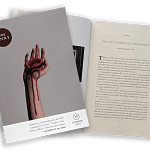Reading List:
“Why the Culture of the So-Called Great Books is Hostile to Trans People,” by Naomi Kanakia
“Brandon Taylor’s online writing is vibrant, funny, and true. Why is his fiction trying so hard to be something else?” by Laura Miller
“A Review of ‘The Late Americans’ is Sending Book Twitter Into A Tailspin,” by Katherine Esters
“The New, Weirdly Racist Guide to Writing Fiction,” by Naomi Kanakia
“How to start your para-intellectual career,” by Naomi Kanakia
My guest on the podcast is Naomi Kanakia, author of 3 extant books as well as roughly 18 forthcoming books in seven different genres. We're going to talk about two big things. One is Naomi herself, her writing and what I would characterize as her unusually meta- approach to thinking and writing about the work of being a writer, her fascination with the subterranean motives and status moves that lie just underneath the wholesome public narratives that writers provide to the world and why and how they do what they do. Before we get to that, though, we're going to spend some time on novelist and substacker Brandon Taylor.
Taylor is a 34-year old black gay writer, primarily of fiction, now based in New York but born and raised in a small town outside of Montgomery, Alabama in a conservative Christian family. He spent a number of years in a graduate biochemistry program at University of Wisconsin Madison before leaving, without finishing the PhD, to focus on fiction, soon after earning his MFA from the Iowa Writers Workshop.
Taylor has since published three works of fiction, the 2020 novel Real Life, which was short listed for a Booker Prize, the 2021 collection Filthy Animals, and most recently this year's Late Americans, which is maybe a collection masquerading as a novel. He's written book reviews and review essays for fancy places like the New York Times and the New Yorker, and he has a very popular substack,
If I had to briefly characterize why I think we find Taylor interesting for the purposes of this podcast, it's less because of his fiction, which is solid but not super distinctive, than because of the ways he deals, as a queer writer of color, with a few different conflicting tendencies within him. He loves the books he loves, irrespective of the race or era of their author. He has a somewhat agonized relationship to woke politics, seems to feel allergic to it in a lot of the particulars but can't shake a kind of global allegiance to it. He has a strong desire to connect with his readers, and he also has a somewhat thin skin.
Naomi Kanakia is the author of three books, the YA novels Enter Title Here and We Are Totally Normal, and the nonfiction semi-self-help tract the Cynical Guide to Publishing.
She also has three, count 'em three, forthcoming books: the YA novel Just Happy to Be Here, the adult novel The Default World, and the nonfictional What’s So Great About The Great Books? And she has a great substack as well, , which you should subscribe to. She got her undergraduate degree at Stanford, and then an MFA at Johns Hopkins. I don't usually list my guest's academic credentials, but I think in this case it will prove relevant to our discussion.
















Share this post